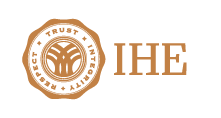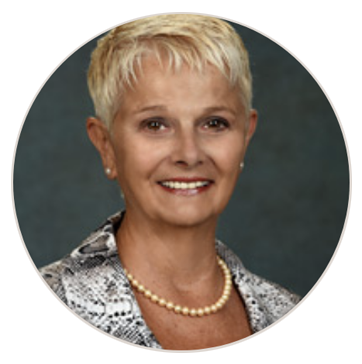Today, we discuss a topic that is pivotal in today’s healthcare—culture transformation, with a focus on nurse and physician well-being, stability, and capacity for growth. It is common to consider these as ‘soft’ skills, largely intangible and difficult to quantify. However, these attributes are not just elements of a ‘feel-good’ strategy: they are integral to improving Return on Investment (ROI).
At the Institute for Healthcare Excellence (IHE), we are dedicated to fostering an environment where healthcare professionals can flourish in ways that enhance the balanced objectives of hospitals and health systems. Our goal is to demonstrate that investing in a culture of well-being, stability, and growth does more than just foster positivity—it significantly boosts ROI.
Investing in Well-Being: More Than Just Feeling Good
Let’s delve into why these so-called ‘soft’ skills are, in fact, core professional skills that can be learned and developed.
Well-being isn’t just about reducing stress or promoting work-life balance. It’s about providing healthcare professionals the resources and support they need to perform at their best. In an industry where lives are at stake, a nurse or physician’s mental and emotional stability directly influences their capacity to provide excellent patient care. It impacts decision-making, collaboration, and overall productivity.
Burnout is a stark reality in the healthcare sector. A survey from the National Academy of Medicine shows that over half of U.S. physicians and nurses experience substantial symptoms of burnout, leading to increased turnover rates, diminished patient satisfaction, and risks to patient safety.
Addressing this, IHE has developed the RELATIONS® program, a comprehensive strategy designed to introduce and enhance skills and behaviors to tackle burnout and exhaustion among healthcare professionals. This investment in well-being has shown measurable ROI by reducing turnover, improving patient experience, and enhancing safety.

ROI of RELATIONS Program
- Reduced turnover: A conservative estimate puts the cost of replacing a single nurse at $82,000-$88,000. With the RELATIONS® program, we’ve seen a significant decrease in turnover rates, translating into substantial cost savings. The financial benefits are even more prominent when we consider the cost to replace physicians, which can be as high as $1 million per doctor, depending on the specialty.
- Improved patient experience: The correlation between healthcare professionals’ well-being and patient satisfaction is well documented. Health professionals who are well-rested, mentally healthy, and have a higher job satisfaction rate, provide a better patient experience. Higher patient satisfaction scores have been linked to better health outcomes and can also have a positive effect on hospital reimbursement rates under value-based purchasing systems.
- Enhanced safety: Reducing burnout isn’t just about improving the lives of our healthcare professionals—it’s about improving patient safety. A study published in the Journal of the American Medical Association found that physician burnout doubled the odds of involvement in patient safety incidents. By turning around burnout, we are enhancing the quality of care and mitigating risks, which further translates into cost savings due to fewer malpractice claims and penalties for safety lapses.
- Engagement in excellence: Increasingly, the ability to provide excellent care and promote continuous care improvement is a team sport. The insights and innovations necessary for a learning care system often come from the professionals engaged in the work. Even if people opt to not leave their job, a disengaged workforce creates drag within the system and hinders achieving core KPIs. The opposite is also true.
The Power of Culture Transformation
Fostering a culture of well-being, stability, and growth isn’t a side project—it’s a strategic investment. Healthcare leaders who understand the power of culture transformation reap the benefits in enhanced ROI. Our RELATIONS® program is a testament to this. By addressing burnout and promoting a healthy, growth-centric work environment, we’re not just improving the present—we’re ensuring a resilient, sustainable future for our healthcare professionals, our institutions, and the patients we serve.
As we move forward, let’s break away from the notion of these as ‘soft’ skills. They are, in reality, foundational to a successful, thriving healthcare organization. The ROI of these core skills through initiatives like the RELATIONS® program speaks volumes about their value. They are the way forward for improved patient care, safety, and fiscal health.
With commitment and action, we can shift our healthcare culture to one that champions well-being, stability, and growth. Let’s make this investment together—for our healthcare professionals, our patients, and our future.
Learn more about our Solutions for Thriving program and the 5 critical steps to turn around burnout and build a thriving healthcare organization.



























